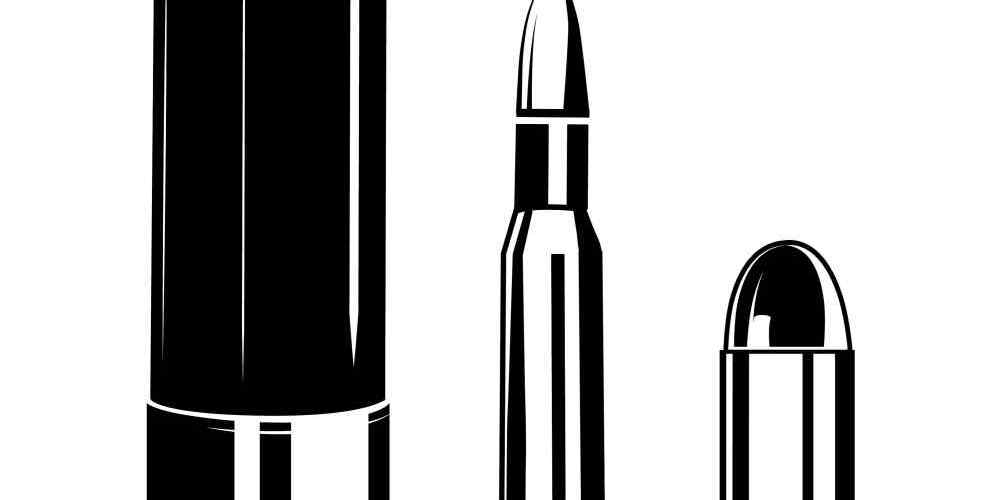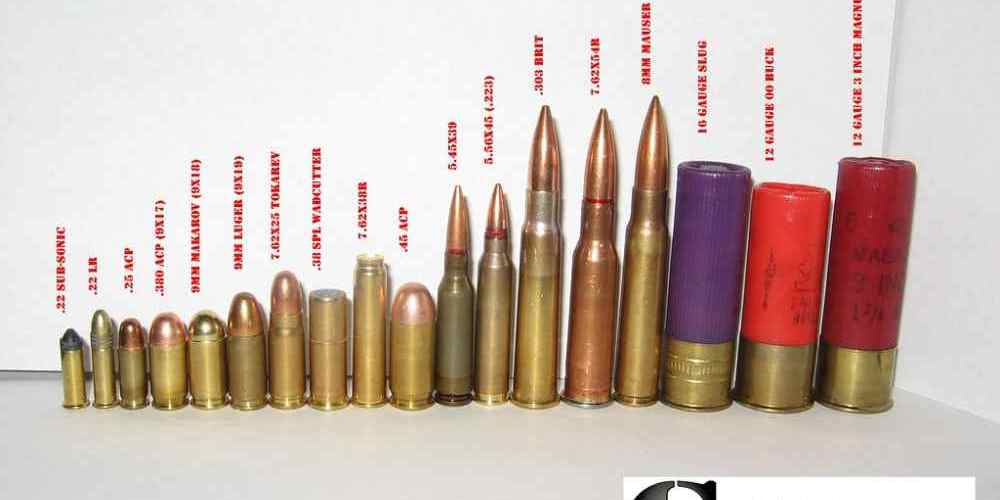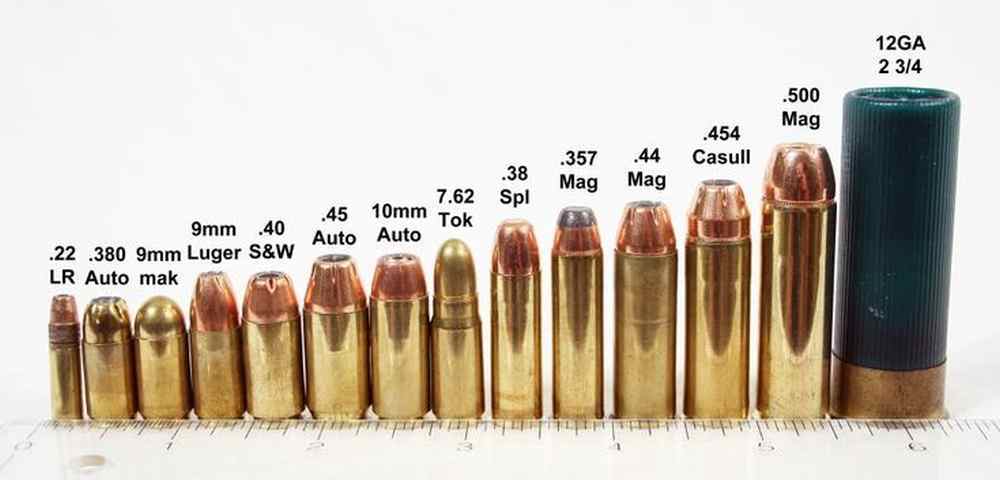“Choose with confidence, test your ammo.”
Accuracy Testing Methods for Revolver Ammo
When it comes to selecting the right ammunition for your revolver, accuracy is key. Whether you are a seasoned shooter or a beginner, knowing how to evaluate revolver rounds for personal use is essential for achieving optimal performance. In this article, we will discuss some accuracy testing methods that can help you determine which ammunition is best suited for your needs.
One of the most common methods for evaluating revolver rounds is through accuracy testing at the range. This involves shooting a series of rounds from different manufacturers and comparing the results. To ensure accuracy, it is important to use a stable shooting platform, such as a bench rest, and to shoot at a consistent distance. By recording the groupings of each round, you can determine which ammunition performs best in terms of accuracy.
Another important factor to consider when evaluating revolver rounds is consistency. Consistency refers to the ability of the ammunition to produce similar results shot after shot. To test for consistency, shoot multiple rounds of the same ammunition and compare the groupings. If the groupings are tight and consistent, it is a good indication that the ammunition is reliable and accurate.
In addition to accuracy and consistency, it is also important to consider the recoil of the ammunition. Recoil can affect your ability to shoot accurately, especially in rapid-fire situations. To test for recoil, shoot a series of rounds and pay attention to how the gun handles. If the recoil is manageable and does not affect your accuracy, the ammunition may be a good choice for personal use.
One of the best ways to evaluate revolver rounds for personal use is through real-world testing. This involves shooting the ammunition in various scenarios that mimic real-life situations. For example, you can shoot the ammunition at different distances, from different shooting positions, and under different lighting conditions. By testing the ammunition in real-world scenarios, you can determine how it performs in practical shooting situations.
When evaluating revolver rounds for personal use, it is important to consider the intended purpose of the ammunition. For self-defense purposes, you may want to choose ammunition that is designed for maximum stopping power. For target shooting or competition, you may prefer ammunition that is accurate and consistent. By considering the intended purpose of the ammunition, you can select the best option for your needs.
In conclusion, evaluating revolver rounds for personal use requires careful consideration of accuracy, consistency, recoil, and real-world performance. By using accuracy testing methods at the range, you can determine which ammunition performs best in terms of accuracy. Testing for consistency and recoil can help you assess the reliability and manageability of the ammunition. Real-world testing allows you to evaluate how the ammunition performs in practical shooting situations. By considering the intended purpose of the ammunition, you can select the best option for your needs. With these tips in mind, you can confidently choose the right ammunition for your revolver and achieve optimal performance on the range.
Recoil Management Techniques with Different Revolver Rounds
When it comes to selecting the right ammunition for your revolver, there are a few key factors to consider. One of the most important aspects to evaluate is how different rounds perform in terms of recoil management. Recoil can greatly impact your accuracy and overall shooting experience, so it’s crucial to choose rounds that you can comfortably handle.

One of the first things to consider when evaluating revolver rounds for recoil management is the caliber of the ammunition. Generally speaking, larger calibers will produce more recoil than smaller calibers. For example, a .357 Magnum round will typically have more recoil than a .38 Special round. If you’re new to shooting or have difficulty managing recoil, you may want to start with a smaller caliber and work your way up as you become more comfortable.
Another factor to consider is the weight of the revolver itself. Heavier revolvers will generally absorb more recoil than lighter ones. This is because the weight of the gun helps to counteract the force of the recoil, making it easier to control. If you find that you’re having trouble managing recoil with your current revolver, you may want to consider upgrading to a heavier model.
In addition to caliber and weight, the type of ammunition you choose can also impact recoil management. For example, full metal jacket (FMJ) rounds tend to have less recoil than hollow point rounds. This is because FMJ rounds are typically lighter and have a more streamlined shape, which reduces the amount of force exerted on the shooter. If you’re looking to minimize recoil, you may want to opt for FMJ rounds over hollow points.
It’s also important to consider the powder load of the ammunition. Rounds with a higher powder load will generally produce more recoil than rounds with a lower powder load. This is because the force of the explosion propelling the bullet forward also pushes the gun backward, creating recoil. If you’re sensitive to recoil or have trouble managing it, you may want to look for rounds with a lower powder load.
When testing different revolver rounds for recoil management, it’s important to pay attention to how each round feels when fired. Take note of how much kickback you experience, as well as how quickly you’re able to get back on target after each shot. If you find that a particular round is causing you to flinch or lose control of the gun, it may not be the best choice for you.
In conclusion, evaluating revolver rounds for recoil management is an important step in selecting the right ammunition for personal use. By considering factors such as caliber, weight, type of ammunition, and powder load, you can choose rounds that you can comfortably handle. Remember to test different rounds and pay attention to how they feel when fired to determine which ones are best suited to your shooting style. With the right ammunition, you can improve your accuracy and enjoy a more enjoyable shooting experience.
Reliability Testing of Revolver Ammunition Brands
When it comes to choosing the right ammunition for your revolver, reliability is key. You want to make sure that the rounds you are using will perform consistently and effectively every time you pull the trigger. This is especially important for personal defense situations where your life may depend on the reliability of your ammunition.
One way to evaluate the reliability of revolver rounds is through testing. By conducting tests on different ammunition brands, you can determine which ones are the most reliable and best suited for your personal use. There are several factors to consider when conducting reliability testing, including accuracy, consistency, and performance.
Accuracy is crucial when it comes to revolver ammunition. You want rounds that will hit your target consistently and accurately every time. To test the accuracy of different ammunition brands, set up a target at a specific distance and fire multiple rounds from each brand. Take note of how closely the rounds group together and how close they are to the target. This will give you a good indication of the accuracy of each brand.
Consistency is another important factor to consider when evaluating revolver rounds. You want rounds that will perform consistently from shot to shot. To test the consistency of different ammunition brands, fire multiple rounds from each brand and compare the results. Look for any variations in velocity, recoil, and impact on the target. Consistent performance is key to ensuring that your rounds will perform reliably in any situation.
Performance is perhaps the most important factor to consider when evaluating revolver ammunition. You want rounds that will deliver the desired effect on your target, whether that be stopping power, penetration, or expansion. To test the performance of different ammunition brands, consider using ballistic gel or other testing mediums to simulate real-world conditions. This will give you a good idea of how each brand performs in terms of terminal ballistics.
In addition to accuracy, consistency, and performance, there are other factors to consider when evaluating revolver ammunition brands. These include reliability, quality control, and price. You want rounds that are reliable and will function properly in your revolver every time. Look for brands that have a reputation for quality control and consistency in their manufacturing processes. While price is not the most important factor, it is still something to consider when choosing ammunition for personal use.
Overall, reliability testing of revolver ammunition brands is essential for ensuring that you are using rounds that will perform effectively in any situation. By evaluating factors such as accuracy, consistency, and performance, you can determine which brands are the most reliable and best suited for your personal use. Remember to consider factors such as reliability, quality control, and price when choosing ammunition for your revolver. With the right testing and evaluation, you can find the perfect rounds for your personal defense needs.
Terminal Ballistics Analysis of Revolver Rounds
When it comes to selecting ammunition for your revolver, it’s important to consider more than just the caliber and brand. Understanding the terminal ballistics of different revolver rounds can help you make an informed decision about which ammunition is best suited for your personal use.
Terminal ballistics refers to the behavior of a projectile once it hits its target. This includes factors such as penetration depth, expansion, and energy transfer. By evaluating these characteristics, you can determine how effective a particular round will be in stopping a threat.
One of the most important factors to consider when evaluating revolver rounds is penetration depth. This refers to how far the bullet travels into the target before coming to a stop. In general, deeper penetration is better as it increases the likelihood of hitting vital organs or blood vessels. However, over-penetration can also be a concern, as it may pose a risk to bystanders or cause collateral damage.
Expansion is another key consideration when evaluating revolver rounds. Expansion refers to how much the bullet expands upon impact with the target. A bullet that expands properly can create a larger wound channel, increasing the chances of incapacitating the threat. However, bullets that fail to expand may not be as effective in stopping an attacker.
Energy transfer is also an important factor to consider when evaluating revolver rounds. This refers to the amount of energy that is transferred from the bullet to the target upon impact. Rounds that transfer more energy are more likely to cause significant tissue damage, increasing the likelihood of stopping a threat.
To evaluate the terminal ballistics of different revolver rounds, it’s important to conduct thorough testing. This can be done by shooting the rounds into a ballistic gelatin block, which simulates the density and consistency of human tissue. By examining the wound cavities created by each round, you can determine how well they perform in terms of penetration, expansion, and energy transfer.
When conducting ammo testing, it’s important to use a consistent methodology to ensure accurate results. This includes using the same type of gelatin block, shooting distance, and environmental conditions for each test. It’s also important to shoot multiple rounds of each type to account for variations in performance.
After conducting ammo testing, it’s important to analyze the results and compare the performance of different revolver rounds. Look for rounds that exhibit deep penetration, proper expansion, and high energy transfer. Consider factors such as recoil, muzzle flash, and price when making your final decision.
In conclusion, evaluating the terminal ballistics of revolver rounds is essential for selecting ammunition that is effective for personal use. By considering factors such as penetration depth, expansion, and energy transfer, you can make an informed decision about which rounds are best suited for your needs. Conducting thorough testing and analysis will help you choose ammunition that provides the stopping power you need in a self-defense situation.
Comparing Price and Performance of Revolver Ammo Brands
When it comes to selecting the right ammunition for your revolver, there are a few key factors to consider. One of the most important aspects to evaluate is the price and performance of different revolver ammo brands. By comparing these factors, you can ensure that you are getting the best value for your money while also selecting rounds that will perform reliably in your firearm.
Price is often a significant consideration for many gun owners, as ammunition costs can quickly add up, especially for those who shoot regularly. When comparing the price of revolver ammo brands, it’s essential to consider both the cost per round and the overall value of the ammunition. While some brands may offer lower prices upfront, they may not provide the same level of performance or reliability as more expensive options.
Performance is another critical factor to consider when evaluating revolver ammo brands. The performance of a round can be influenced by a variety of factors, including the caliber, bullet weight, and powder charge. It’s essential to select ammunition that is designed to perform well in your specific revolver, as using the wrong type of ammo can lead to malfunctions or inaccurate shooting.
To compare the price and performance of different revolver ammo brands, it’s helpful to conduct some testing. One way to do this is by shooting a variety of rounds through your revolver and evaluating factors such as accuracy, recoil, and reliability. By keeping detailed notes on each brand of ammo you test, you can make an informed decision about which rounds are best suited for your personal use.
When conducting ammo testing, it’s essential to use a consistent methodology to ensure accurate results. This may involve shooting multiple rounds of each brand through your revolver, using a consistent shooting stance and grip, and recording data on factors such as group size and velocity. By following a standardized testing procedure, you can ensure that your results are reliable and comparable across different brands of revolver ammo.
In addition to evaluating the price and performance of revolver ammo brands, it’s also essential to consider factors such as availability and reputation. Some brands may be more widely available than others, making it easier to find and purchase the ammunition you need. Additionally, brands with a strong reputation for quality and reliability are more likely to provide consistent performance in your revolver.
Ultimately, the best way to evaluate revolver rounds for personal use is to conduct thorough testing and research. By comparing the price and performance of different ammo brands, you can make an informed decision about which rounds are best suited for your needs. Whether you prioritize affordability, performance, or availability, there are revolver ammo brands out there that will meet your criteria. By taking the time to evaluate your options, you can ensure that you are selecting the best ammunition for your revolver.





